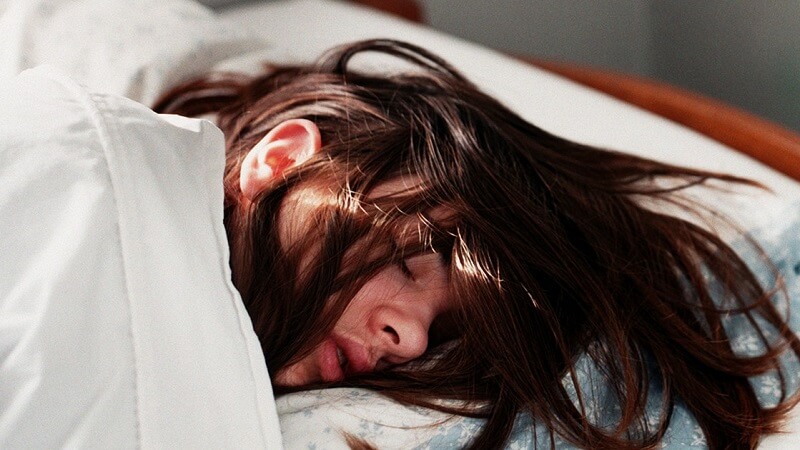People all over the world are not getting enough sleep. Due to the demands of modern society and lifestyle changes that disrupt biological clocks, many people are struggling to sleep well. As a result, sleeping disorders are becoming more common. In fact, 70 million people live with sleeping disorders each year in the United States alone.
Are you one of these people? Do you constantly feel tired, even after a long night’s rest? Do you frequently depend on caffeine or similar substances to stay awake? Do you wake up often in the middle of the night?
If you responded “yes” to any of these questions, you might be living with a sleeping disorder. Read on to learn more about sleep disorders, including the most common types, typical causes, common symptoms, and treatment options. After reading this article, head on over to BetterHelp to learn more about how a lack of sleep can affect your mental health.
Common Sleep Disorders

There are about 80 different sleep disorders known to medical science. They all have varying causes and effects on those who live with them. However, there are a handful of disorders that take up the majority of sleep disorder cases. The following sleep disorders are the most common and well-known.
Insomnia
This is the medical term for any difficulty falling asleep or staying asleep. It is the most common sleep disorder, with at least 50% of the population experiencing it at some point in their lives. It can be short-term and last only a few nights or take over a person’s life for weeks, months, or even years.
Long-term insomnia can be detrimental to your health, resulting in irritability, depression, and weight gain. The lack of adequate sleep can also hurt your concentration and work or school performance.
Sleep Apnea
Sleep apnea occurs when there are pauses in a person’s breathing while they are asleep. This common sleep disorder is serious because it results in less oxygen flowing through the body and brain, disrupting other vital functions. It also can result in the person waking up several times throughout the night, even if they don’t remember doing so in the morning.
Sleep apnea has two potential causes. First, it can be caused by an obstruction that prevents a person from breathing in enough oxygen. However, another cause is a disconnection between the brain and the muscles in charge of breathing.
Restless Leg Syndrome
As the name suggests, restless leg syndrome is a disorder that causes the person to have a strong need to move their legs throughout the night. In some cases, the person may also experience an intense tingling sensation in the legs. This disorder may keep the person up all night, preventing them from getting the sleep they desperately need.
Narcolepsy
People living with narcolepsy are overcome by sudden feelings of extreme exhaustion and may fall asleep randomly throughout the day with no warning. This is a hazardous sleeping disorder as it can come anytime, including while driving or taking a walk. It is often associated with other disorders but may also occur on its own.
Causes Of Sleep Disorders

Though specific causes of sleep disorders depend on the disorder itself, there are many common causes across most sleep disorders. Below is a list of common reasons why someone may develop a sleep disorder:
- Allergies and respiratory problems
- Mental health conditions such as depression or anxiety
- Aging
- Certain medications
- Environmental issues (such as loud noises or too much light)
- Genetics
- Working evenings/nights
- Too much screen time before bed
- Stress
- Chronic pain
Signs You May Have A Sleep Disorder

Though all sleep disorders vary in their symptoms, the fact is that you still are not getting enough sleep. Therefore there are some signs and symptoms that are fairly common or universal. These symptoms include:
- Trouble falling or staying asleep
- Fatigue throughout the day
- The urge to nap when inactive, such as when watching television
- Breathing problems
- Irritability
- Anxiety
- Depression
- Difficulty concentrating
- Weight gain
- Decreased performance at work or school
- Slowed responses and reactions
- Difficulty controlling emotions
How To Treat A Sleep Disorder

If you believe you have a sleep disorder, you should consult with a medical professional right away. A lack of sleep not only affects every aspect of your life but, in extreme cases, can be dangerous.
Depending on the disorder and its causes, your doctor may prescribe medication or lifestyle changes. Medication options usually include a melatonin supplement or a specific medication to treat the underlying cause (such as allergy medication for allergies). Lifestyle changes may include ways to reduce stress or anxiety, using earplugs for noise, or reducing screentime.
Sleep disorders are not something to dismiss. It is important to ensure that you get enough sleep for peak physical and mental health. If you experience any of the symptoms listed in this article, then speak to a medical professional about your sleeping problems as soon as possible.
Follow Us: Facebook | Instagram | Twitter |
Entertales is on YouTube; click here to subscribe for the latest videos and updates.














